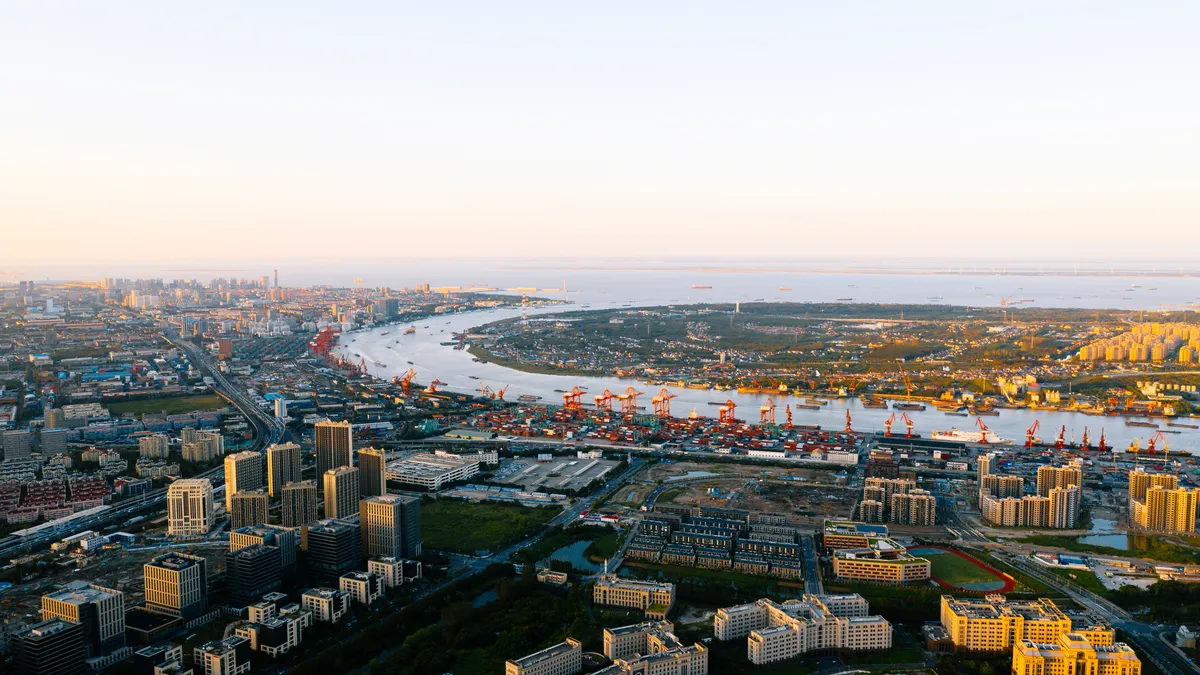After just over two years of a largely successful "zero-COVID" policy, China is facing its biggest test to date in the metropolis of Shanghai and the supply chain headaches that come with a massive lockdown.
Last Monday morning, the city reported a record number of more than 25,000 new cases, according to state media. Officials have begun easing the lockdown for some areas despite the high case numbers, but the majority of the city remains immobilized.
Meanwhile, supply chain problems are compounding. Costs are rising and inputs can't be transported to factories. Trucking has slowed to a near standstill. As cases continue to climb and disruptions extend, executives and analysts are getting increasingly anxious about the scale of the lockdown's impact on global supply chains.
Supply chain problems compound
Truck drivers entering sites including Shanghai's port, airport and factories must show negative COVID-19 test results from as recently as the last 24 hours, said Cameron Johnson, head of APAC Strategy at FAO Global. As the country struggles to simultaneously process millions of tests, the requirements have caused a logistical nightmare to get goods moved.
"Trucking is the lifeblood of the first and last mile," said Derek Bushaw, head of network operations, Asia, at Flexport. "The first mile for the factories is that inbound delivery of components, and whether those are imported or domestically sourced, that's still a challenge because it depends on trucking."
Damage to supply chain efficiency is already evident. Some shipping companies earlier this month noted a 30% drop in efficiency due to a lack of trucking transport at the port, Everstream Analytics said in an email. In response, many companies are diverting cargo away from Shanghai. That includes Flexport, according to Bushaw, who said none of the company's deliveries in the city can be completed as of Monday morning.
On April 8, CMA CGM announced that it would waive change of destination administration fees for rerouting reefers to alternative ports, such as the nearby Port of Ningbo-Zhoushan. The ocean carrier is encouraging rerouting options because of "drastically" slower pick up times and "excessively stretched" dwell times in Shanghai.
For now, many facilities in and around Shanghai have so far been able to maintain relatively normal production thanks to a "closed loop system," in which workers live on the factory or transport campus, Johnson said. But if restrictions aren't eased soon, "eventually supplies will run out," according to Jena Santoro, manager of intelligence solutions for the Americas at Everstream Analytics.
Cracks in the closed-loop system are already forming. On April 12, Apple supplier Pegatron announced that it had halted production at both its Shanghai and Kunshan plants due to COVID-19 restrictions.
Johnson noted that the key timeframe for a faster bounce back to normalcy in supply chains is the end of April. If officials can contain the outbreak and lift lockdowns this month, the logistical backlog could be addressed within roughly a quarter.
"If though it goes past April, then I think you'll start to see major disruptions," Johnson said. "You'll see commodity prices rise, suppliers not getting paid."
'The biggest challenge is uncertainty'
Even when the lockdown does lift and logistics come back online in full, companies may face fresh headaches as they all vie for supplies at the same time, Johnson said. The ensuing supply constraints could cause commodity prices to rise another 4% to 5%.
Santoro emphasized that much remains uncertain when it comes to the degree of damage that supply chains will incur given that no one knows for certain when the lockdown will end. For the next few weeks, companies that source from manufacturers in China should consider rail, barge and air cargo while trucking remains difficult.
The longer-term concern among many observers is that this lockdown is only the beginning. The neighboring city of Kunshan has also faced tight restrictions since early April, prompting many factories to halt production.
Kunshan is home to several major automotive and electronics suppliers that service companies like Tesla in Shanghai, as well as Apple, said Santoro. Electronics and automotive supply chains will be hard hit by supplier shortages amid the dual restrictions.
"The worry here is that the outbreak has just started," Santoro said. "This is going to blow up. Whether or not Shanghai lifts in a week, this is just going to be the next one."
And with officials adamant about sticking to China's zero-COVID policy, lockdowns and the disruptions are likely to continue.
"We have a real challenge in planning, because as soon as you get out of trouble in one area, a few weeks later you're into trouble in another area," Bushaw said. "The biggest challenge is uncertainty and not knowing ... when these challenges will come to an end."

























